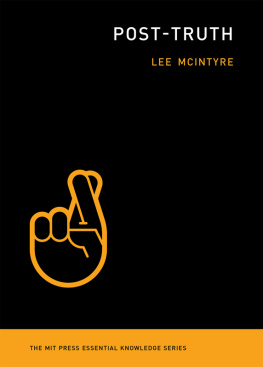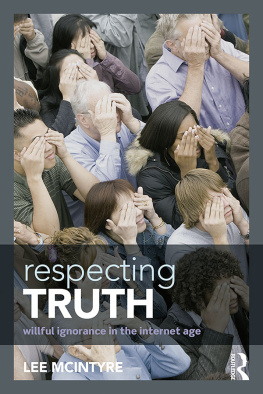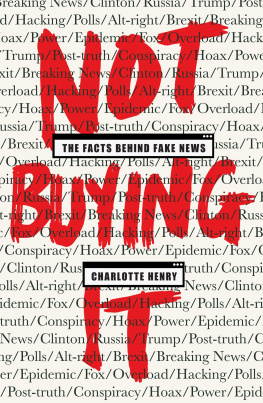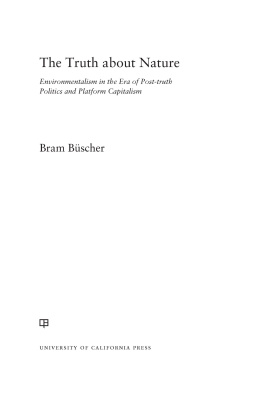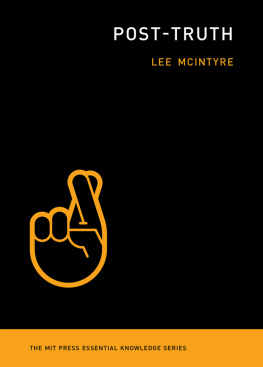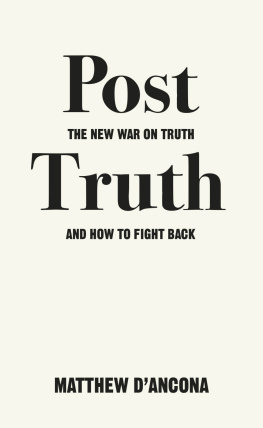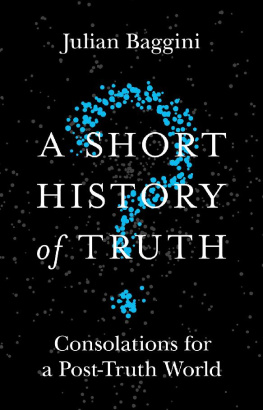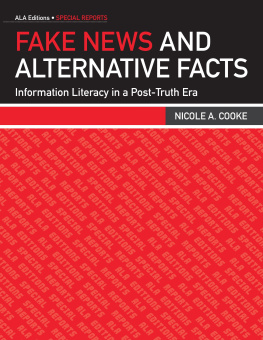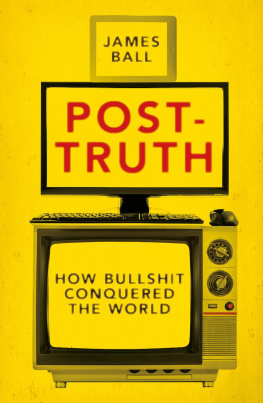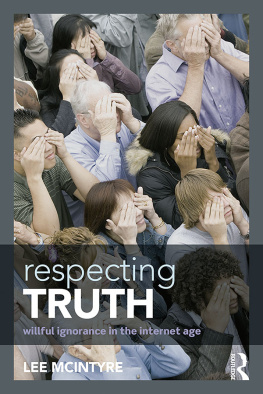
The MIT Press Essential Knowledge Series
Auctions, Timothy P. Hubbard and Harry J. Paarsch
Cloud Computing, Nayan Ruparelia
Computing: A Concise History, Paul E. Ceruzzi
The Conscious Mind, Zoltan L. Torey
Crowdsourcing, Daren C. Brabham
Free Will, Mark Balaguer
The Future, Nick Montfort
Information and Society, Michael Buckland
Information and the Modern Corporation, James W. Cortada
Intellectual Property Strategy, John Palfrey
The Internet of Things, Samuel Greengard
Machine Learning: The New AI, Ethem Alpaydin
Machine Translation, Thierry Poibeau
Memes in Digital Culture, Limor Shifman
Metadata, Jeffrey Pomerantz
The MindBody Problem, Jonathan Westphal
MOOCs, Jonathan Haber
Neuroplasticity, Moheb Costandi
Open Access, Peter Suber
Paradox, Margaret Cuonzo
Post-Truth, Lee McIntyre
Robots, John Jordan
Self-Tracking, Gina Neff and Dawn Nafus
Sustainability, Kent E. Portney
The Technological Singularity, Murray Shanahan
Understanding Beliefs, Nils J. Nilsson
Waves, Frederic Raichlen
Post-Truth
Lee McIntyre
The MIT Press
Cambridge, Massachusetts
London, England
2018 Massachusetts Institute of Technology
All rights reserved. No part of this book may be reproduced in any form by any electronic or mechanical means (including photocopying, recording, or information storage and retrieval) without permission in writing from the publisher.
This book was set in Chaparral Pro by Toppan Best-set Premedia Limited. Printed and bound in the United States of America.
Library of Congress Cataloging-in-Publication Data
Names: McIntyre, Lee C., author.
Title: Post-truth / Lee C. McIntyre.
Description: Cambridge, MA : MIT Press, 2018. | Series: The MIT Press essential knowledge series | Includes bibliographical references and index.
Identifiers: LCCN 2017034497 | ISBN 9780262535045 (pbk. : alk. paper)
eISBN 9780262345965
Subjects: LCSH: Truth. | Truthfulness and falsehood.
Classification: LCC BD171 .M39 2018 | DDC 121dc23 LC record available at https://lccn.loc.gov/2017034497
ePub Version 1.0
For Andy and Jon
Fellow lovers of wisdom
The very concept of objective truth is fading out of the world. Lies will pass into history.
George Orwell
Series Foreword
The MIT Press Essential Knowledge series offers accessible, concise, beautifully produced pocket-size books on topics of current interest. Written by leading thinkers, the books in this series deliver expert overviews of subjects that range from the cultural and the historical to the scientific and the technical.
In todays era of instant information gratification, we have ready access to opinions, rationalizations, and superficial descriptions. Much harder to come by is the foundational knowledge that informs a principled understanding of the world. Essential Knowledge books fill that need. Synthesizing specialized subject matter for nonspecialists and engaging critical topics through fundamentals, each of these compact volumes offers readers a point of access to complex ideas.
Bruce Tidor
Professor of Biological Engineering and Computer Science
Massachusetts Institute of Technology
Preface
As I write thisin the spring of 2017there is no hotter topic of conversation than post-truth. We see it in the headlines and on TV. We overhear it in conversations at restaurants and on the elevator. This presents both an advantage and a challenge, for how to write about something that is still so new, evolving, and controversial?
This book will likely be different in tone from others in the Essential Knowledge series, for its topic is unique. The notion of post-truth was born from a sense of regret by those who worry that truth is being eclipsed. If not overtly partisan, this at least presumes a point of view: that facts and truth are endangered in todays political arena.
Given this context, in the chapters that follow it would be impossible to achieve the kind of dispassionate neutrality that one might expect in an academic book. Indeed, to do so would be to engage in a kind of false equivalence that is the hallmark of post-truth itself. The other side of the post-truth debate does not consist of people who defend itor think that post-truth is a good thingbut those who deny that a problem even exists. Yet (unless my aim is that of a debunker) to presume to write a book about post-truth is to admit that there is a problem. In my analysis I will therefore strive to be honest, but I cannot promise to be balanced. When the mistakes fall disproportionately on one side, it is no respect for the notion of truth to pretend that everything is even.
Some may wonder whether the idea of post-truth is really all that new. Isnt it just synonymous with propaganda? Arent alternative facts just falsehoods? But it is not that simple. While there is some historical precedent for our current situationwhich we will examineit would be wrong to try to reduce post-truth to something else. To say that facts are less important than feelings in shaping our beliefs about empirical matters seems new, at least in American politics. In the past we have faced serious challengeseven to the notion of truth itselfbut never before have such challenges been so openly embraced as a strategy for the political subordination of reality. Thus what is striking about the idea of post-truth is not just that truth is being challenged, but that it is being challenged as a mechanism for asserting political dominance. And that is why one cannot shy away from politics if we are going to understand what one must essentially know about the idea of post-truth.
Acknowledgments
I would like to thank several people for their contributions to this book. First and foremost, my wife Josephine has always stood by me and supported my ideas, wanting nothing more than to see me do work that I believe in. Her advice has been crucial in helping me to make this a better book. I am lucky to have a daughter and son, both of whom share my love for philosophy, who also read this manuscript with a critical eye. I am grateful to Louisa and James for helping me to make numerous improvements to both style and substance.
Special thanks go out to my friends Andy Norman and Jon Haber, who offered numerous commentsand criticismsthat helped me to shape this project. It goes without saying that neither of them is responsible for the final content, but their inspiration as honest lovers of argument and ideas has been so great that I would like to dedicate the book to them. Julia Robinson was an incisive commentator on the manuscript and Diana Rodriguez was an excellent debating partner when I was first considering the ideas that are expressed here. Bryan Barash helped me with a perfectly timed conversation about fake news. I thank them all.
I am fortunate to have had three excellent reviewers, all anonymous so I cannot thank them here by name, each of whom made important critical comments and helped me to improve my final draft.
Finally, I owe a great debt of gratitude to my editor Phil Laughlin; without his vision and guidance, this project never would have happened. I am also grateful to all of the other expert staff at the MIT Press, who make me proud whenever I publish with them. From editing to design and marketing to publicity, they are always a pleasure to work with, especially on what is now my third book with them. Here Judith Feldmann, my copy editor, deserves special thanks for saving me from a number of infelicities in a project that had such a short timeline.
Next page
